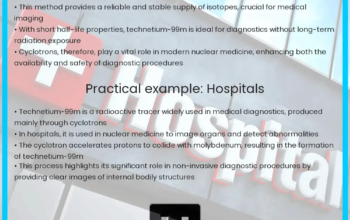The realm of photonics, an interdisciplinary field that intricately merges the principles of physics and engineering, has witnessed exponential growth and sophistication in recent years. As technological advancements continue to permeate various industries, the demand for skilled photonics engineers has surged. Companies seeking to integrate photonics into their operations are increasingly on the lookout for professionals who can navigate this complex landscape. This article delves into the types of companies seeking photonics engineers, the skills and attributes these organizations value, and the overarching trends catalyzing this demand.
Photonics, which primarily involves the generation, manipulation, and detection of light, has found applications across a diverse array of sectors including telecommunications, medical technology, manufacturing, and defense. The confluence of these industries creates a fertile environment for the emergence of new opportunities tailored explicitly for photonics expertise. Let us explore the sectors wherein companies are fervently recruiting photonics engineers.
First and foremost, the telecommunications sector stands as a colossal consumer of photonic technology. In an era where data transmission is paramount, companies engaged in telecommunications are incessantly striving for enhancements in bandwidth and speed. Photonic integrated circuits (PICs), which facilitate the integration of multiple photonic functions onto a single chip, have revolutionized data communication. Organizations like Cisco Systems, Huawei Technologies, and Ericsson are at the forefront of this evolution, necessitating engineers who can innovate in areas such as optical networking and fiberoptic systems. Engineers in this domain must possess a robust understanding of wave propagation, modulation techniques, and optical signal processing, as these are critical in developing cutting-edge telecommunications infrastructure.
Another significant domain where photonics engineers are in high demand is medical technology. The healthcare sector increasingly leverages photonic innovations to enhance diagnostic accuracy, treatment efficacy, and therapeutic delivery mechanisms. Photonic devices such as laser systems, optical coherence tomography, and biosensors play critical roles in non-invasive medical imaging and minimally invasive surgical procedures. Companies like Siemens Healthineers, Medtronic, and GE Healthcare actively seek professionals who can bridge the gap between scientific research and practical medical applications. Here, an understanding of biological systems combined with optical design and signal processing is essential. Photonics engineers must be adept at both the theoretical aspects of light-matter interactions and the practical applications that can significantly alter patient outcomes.
The manufacturing industry is also undergoing a seismic shift with the advent of photonic applications. Lasers have become indispensable tools in precision cutting, welding, and material processing. Companies engaged in industrial automation and manufacturing technologies increasingly rely on photonic solutions to drive efficiency and quality assurance in their production lines. Firms like TRUMPF and Coherent exemplify this trend, as they require engineers who are not only proficient in laser technology but also possess an astute sense of application development and systems engineering. The ability to integrate photonics into existing manufacturing systems can drastically enhance productivity and reduce operational costs, an enticing proposition for manufacturing giants.
Defense and aerospace equally present a fertile landscape for photonics engineers. The constant evolution of surveillance and targeting systems has catalyzed the integration of photonic technologies into military applications. Companies involved in defense contracting, such as Raytheon, Northrop Grumman, and Lockheed Martin, are searching for engineers who can design advanced photonic systems for applications including remote sensing, threat detection, and laser weapons systems. Professionals aiming to attract the attention of these organizations must be well-versed in topics such as laser beam propagation, infrared sensing, and electro-optical systems. The intersection of photonics with national security and defense signifies how critical this expertise has become in safeguarding interests and enhancing military capabilities.
Moreover, academic institutions and research organizations subsequently play a pivotal role in advancing photonics technology. Universities and national laboratories often seek engineers who can contribute to research initiatives, develop novel materials for photonic devices, and push the boundaries of current scientific understanding. Such positions demand not only engineering prowess but also an inquisitive mindset and a scholarly approach to problem-solving. Engineers in these settings often collaborate with multidisciplinary teams, exploring innovative solutions to complex challenges, thereby significantly contributing to the overall progression of the photonics field.
As a common observation across these sectors, companies consistently seek out engineers who embody a hybrid skill set that transcends traditional boundaries. Proficiency in optical physics, combined with practical engineering expertise, is indispensable. Additionally, the increasing emphasis on interdisciplinary collaboration necessitates strong communication skills and a capacity for teamwork. In navigating the complexities of modern engineering challenges, the ability to articulate ideas clearly and work harmoniously with diverse groups is invaluable.
In light of the burgeoning interest in sustainable technologies, companies are also leaning towards photonics as a solution for creating energy-efficient systems. Organizations focused on renewable energy applications, such as solar photovoltaics, are enlisting photonics engineers to enhance the efficiency and performance of light-harvesting technologies. This trend indicates a growing recognition of the pivotal role that photonics can play in addressing global challenges such as climate change and energy sustainability.
Ultimately, as we step into an epoch characterized by rapid technological innovations, the demand for photonics engineers is expected to escalate. Companies across the telecommunications, medical technology, manufacturing, defense, and academic sectors are actively on the lookout for those equipped with a comprehensive knowledge base and the ability to innovate. Engineers who can harness the capabilities of light to drive progress and solve real-world challenges will undoubtedly shape the future of this fascinating field. The confluence of technology and light-based solutions promises to deliver groundbreaking discoveries and advancements, making the journey into photonics not just a career choice, but an opportunity to be at the forefront of transformative change.












